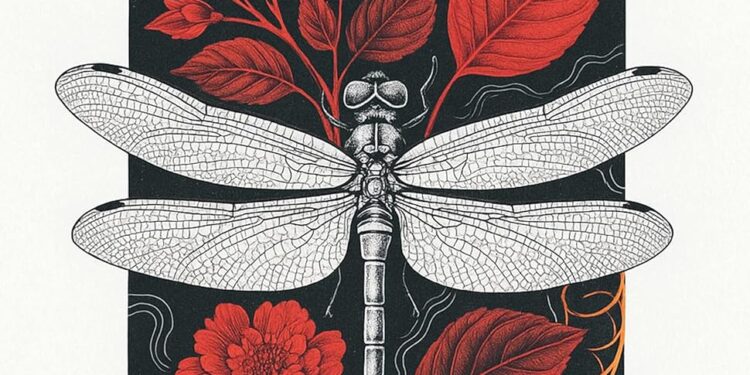
The House of Dragonflies: Smitha Menon Kizhuveetil’s debut novel, The House of Dragonflies, is a richly layered work of fiction that delves into the emotional, spiritual, and generational complexities of a family haunted by a mysterious curse. Set in the picturesque yet melancholic village of Viruthi in mid-Kerala, the novel captures the essence of life within Chittezham, an ancestral house that is as much a character as the people who have lived in it.
From the very first page, The House of Dragonflies immerses readers in a world where memories linger like shadows and the echoes of the past refuse to fade. The narrative is centered on Charulatha, the last heir of the Chittezham family, a solitary woman grappling with inner turmoil, recurring dreams, and the weight of unspoken histories.
A House Burdened by a Curse
At the heart of The House of Dragonflies lies a deep-rooted mystery—a generational curse that has plagued the Chittezham family for decades. Charulatha’s return to this crumbling house sets the story in motion, as she confronts not only the ghosts of her ancestors but also the silence and pain that have shaped her life. Her emotional journey is both intimate and universal, reflecting the burdens many carry in silence.
The author’s portrayal of Charulatha is emotionally nuanced. Through her, The House of Dragonflies explores themes of loneliness, inheritance, mental health, and the timeless desire for closure and belonging.
A Tapestry of Tales: Layers of Memory and Emotion
What sets The House of Dragonflies apart is its narrative structure. Rather than following a single linear plot, the novel unfolds as a collection of interwoven stories—tales within tales—that reveal the lives of those who once called Chittezham home. Each chapter adds a new dimension to the family’s history and deepens the mystery of the curse.
From poignant portraits of motherhood and friendship to the subtle explorations of spiritual guardianship and love in all its shades, these stories make The House of Dragonflies not just a novel, but a living archive of emotions and experiences. The speculative undertone, inspired by real events, adds an air of magical realism while maintaining an emotional anchor in reality.
Nature’s Silent Role in the Narrative
A unique strength of The House of Dragonflies is the author’s poetic portrayal of the natural world. Nature, in this novel, is more than scenery—it is witness, protector, and sometimes avenger. The dragonflies themselves symbolize transformation, fleeting beauty, and spiritual presence, hovering throughout the narrative as silent observers and messengers.
Kizhuveetil uses nature to explore the fragile strand between human belief and natural truth. The connection between man and the environment is palpable, reinforcing the idea that healing and harmony are found not just within ourselves, but in our relationship with the world around us.
Healing Through Revelation
As Charulatha uncovers the secrets buried within the walls of Chittezham, she embarks on a personal path of healing. The House of Dragonflies delves into the psychology of trauma and the possibility of recovery. Her unraveling of the family curse mirrors her own process of self-discovery and emotional restoration.
The prose is lyrical and atmospheric, filled with vivid imagery and emotional depth. Kizhuveetil’s writing style suits the introspective tone of the novel perfectly, allowing readers to not just witness Charulatha’s journey, but feel it.
Why The House of Dragonflies is a Must-Read
For lovers of literary fiction, family sagas, and books infused with culture, emotion, and mystery, The House of Dragonflies is an exceptional read. It offers a unique blend of folklore, speculative fiction, and psychological depth. Kizhuveetil has crafted a deeply emotional debut that speaks to the power of stories in preserving memory, confronting trauma, and finding hope in the face of generational pain.
Final Thoughts
The House of Dragonflies is a haunting, poetic exploration of love, loss, and legacy. Through Charulatha’s journey, the novel offers a moving reflection on the human spirit’s capacity to endure, adapt, and ultimately heal. With its beautifully woven storytelling, emotional richness, and cultural resonance, The House of Dragonflies establishes Smitha Menon Kizhuveetil as a voice to watch in Indian literature.















